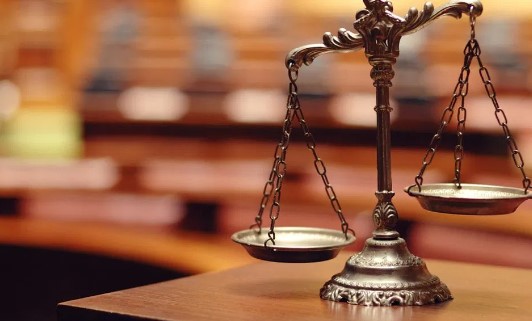A Comprehensive Overview of the LifeWave Lawsuit

Introduction
LifeWave, a health and wellness company known for its innovative patch technology, has found itself embroiled in legal battles that have captured significant attention. Founded in 2004 by David Schmidt, LifeWave markets its patches as non-transdermal and capable of improving various health conditions without the need for drugs or chemicals. However, the company’s claims and business practices have led to multiple lawsuits, raising questions about the efficacy of their products and the ethicality of their business model. This article delves into the key aspects of the LifeWave lawsuit, examining the allegations, court proceedings, and the potential implications for the company and its consumers.
Background of LifeWave
LifeWave’s primary product line consists of patches that are said to interact with the body’s energy systems, purportedly improving health and wellness. The patches, which include versions aimed at pain relief, better sleep, anti-aging, and energy enhancement, are claimed to work through phototherapy. Despite its growing popularity, particularly in alternative health circles, LifeWave has faced scrutiny over the scientific validity of its claims.
The Allegations
The most significant lawsuit against LifeWave revolves around allegations of false advertising, misleading claims, and violations of consumer protection laws. Critics argue that LifeWave’s marketing materials suggest benefits that are not substantiated by rigorous scientific evidence. For example, the company has been accused of overstating the efficacy of its patches in treating serious medical conditions such as chronic pain, depression, and even neurological disorders. These allegations form the crux of the legal challenges against the company.
Additionally, LifeWave’s business model, which operates on a multi-level marketing (MLM) structure, has been called into question. MLMs are often scrutinized for potentially operating as pyramid schemes, where revenue is primarily generated by recruiting new distributors rather than selling products to consumers. This aspect of LifeWave’s operations has led to further legal disputes, with plaintiffs alleging that the company’s practices are deceptive and unsustainable.
Read also: Red Flags To Watch Out For When Hiring A Criminal Defense Lawyer For Your Case
Court Proceedings
The LifeWave lawsuit has seen multiple phases, including preliminary hearings, discovery processes, and motions to dismiss. The company has steadfastly denied all allegations, maintaining that their products are safe, effective, and backed by user testimonials and independent research. However, the plaintiffs argue that anecdotal evidence cannot replace the need for clinical trials and peer-reviewed studies, which are largely absent from LifeWave’s claims.
One of the key points of contention in the court proceedings has been the interpretation of scientific evidence. The plaintiffs have presented expert testimonies that question the validity of LifeWave’s research, highlighting methodological flaws and a lack of reproducibility. Conversely, LifeWave has argued that their technology is cutting-edge and that the regulatory framework does not adequately account for novel therapeutic approaches like theirs.
As the case progresses, both sides have engaged in extensive legal maneuvers. LifeWave has filed motions to dismiss the case on the grounds that the plaintiffs lack standing, and that the claims are overly broad. These motions have been met with resistance, as the plaintiffs argue that the case is of significant public interest, given the widespread use of LifeWave’s products.
Potential Outcomes and Implications
The outcome of the LifeWave lawsuit could have far-reaching consequences for the company and the broader health and wellness industry. If the court rules against LifeWave, the company could face significant financial penalties, forced changes to its marketing practices, and even potential restrictions on the sale of its products. Such a ruling would also set a precedent for other companies in the wellness space, signaling that unsubstantiated health claims and questionable business practices will not go unchecked.
On the other hand, if LifeWave successfully defends itself, it could reinforce the company’s position in the market and embolden other companies with similar business models to continue their operations. However, even in the case of a legal victory, the damage to LifeWave’s reputation could be substantial, with consumers becoming increasingly skeptical of its claims.
Broader Industry Impact
The LifeWave lawsuit highlights a broader issue within the health and wellness industry: the fine line between innovative health products and pseudoscience. As consumers become more health-conscious, there is a growing demand for products that promise quick and easy solutions to complex health problems. This environment has allowed companies like LifeWave to thrive, but it has also led to increased scrutiny from regulators, consumer advocacy groups, and the scientific community.
The case against LifeWave could serve as a catalyst for more stringent regulations in the wellness industry, pushing companies to provide more robust evidence for their claims. It may also prompt consumers to become more discerning, seeking out products backed by solid scientific research rather than relying on testimonials or vague promises.
Conclusion
The LifeWave lawsuit is a significant case that underscores the challenges faced by the health and wellness industry in balancing innovation with consumer protection. As the court proceedings continue, the case will likely provide important insights into the legal and ethical boundaries of marketing health products. Whether LifeWave emerges victorious or faces defeat, the outcome will have lasting implications for the company and the industry at large.




